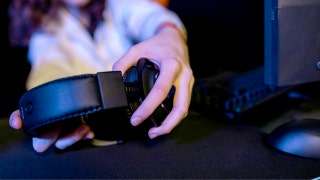We love our devices—our TVs, laptops, tablets, and perhaps most of all, our mobile phones, those pocket-size miracles of computing power. In fact, Gartner, a tech research company, estimated that 1.9 billion cell phones were bought in 2015. That’s around one for every four people alive.
But each of those devices eventually reaches the end of its useful life and becomes electronic waste. And that's a problem. A United Nations study reported that 41.8 million tons of e-waste was discarded in 2014, and only between 10 to 40 percent of it was disposed of properly.
On Earth Day—and every other day—consumers can do something to reduce their e-waste footprint, though. Many of the materials used in making these products can be recovered and reused, including plastics, glass and metal. Ask Apple: The company says it re-captured 2,204 pounds of gold—worth $40 million—from recycled devices in 2015.
Unfortunately, electronics products can also contain toxic substances such as lead, mercury, and cadmium, which all must be disposed of carefully. So far, 25 states have passed laws requiring people to recycle old electronics. But no matter where you live, there are safe methods for disposing of electronic waste.
More From Consumer Reports
First, make sure to completely erase all personal information. It usually isn’t as simple as deleting files: Here's how to get all your personal data off your devices. Once that's done, here are your options.
1. Bring It to the Recycler
Plenty of nonprofit organizations and local communities offer options to help you recycle old electronics. One group, Call2Recycle, offers drop-off locations for rechargeable batteries and cell phones all over the U.S. To find a location, just enter your ZIP code at Call2Recycle.org.
Also, many cities and towns sponsor collection days for electronics. A clickable map at TIA E-cycling Central lists these events by state, along with other local recycling options. And you can get still more options, or just learn how e-waste gets recycled, by consulting eStewards or Sustainable Electronics Recycling International.
2. Donate It
If your used gadget still works—or, in many cases, even if it doesn’t—there’s probably a charity or non-profit out there that would be happy to take it off your hands. You can start by checking local senior organizations and recreation centers. Make sure to get a receipt, so you can deduct your donation on next year's tax return. Here are a few other programs that can help you get your old devices to people who need them.
- Dell Reconnect is a partnership with Goodwill that accepts any brand of computer, as well as “just about anything that can be connected to a computer,” according to the website. You can drop used devices off at participating Goodwill locations around the country.
- AmericanCellPhoneDrive.org collects all brands of used cell phones and will refurbish and resell, or responsibly recycle them, in support of a variety of good causes.
- The World Computer Exchange is on a mission to diminish the digital divide in developing countries as well as to promote the reuse of and proper recycling of electronics. It provides used computers, peripherals, and many other types of gadgets to communities around the world.
- eBay for Charity lets you sell your used devices (or anything else, actually) and donate part or all of the proceeds to a charity of your choosing.
3. Take It to a Tech Firm
Many electronics manufacturers and retailers offer robust recycling programs. A chart at the EPA’s website lets you search programs by product or company. The following are just a few of the many programs that allow consumers to recycle old electronics; check your brand’s or retailer’s company websites for details on their programs.
- Best Buy offers recycling options for a wide range of electronics, no matter where you bought them.
- Sprint’s Buyback program offers account credits of up to $300 for mobile phones from any carrier. For specific details on other phone programs, check the manufacturer websites.
- Amazon pays up to $200.91 (in the form of an Amazon gift card) for just about any kind of electronics device, as well as for music CDs and video games.
- Office Depot and Staples offer members of their affinity programs store credit of $2 per printer cartridge (with some restrictions) for up to 10 cartridges a month. Most printer manufacturers, including HP, Epson and Canon, also have their own recycling programs.
Copyright © 2005-2017 Consumers Union of U.S., Inc. No reproduction, in whole or in part, without written permission. Consumer Reports has no relationship with any advertisers on this site.








































